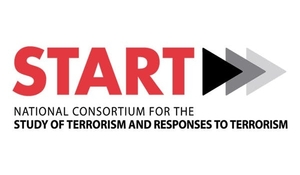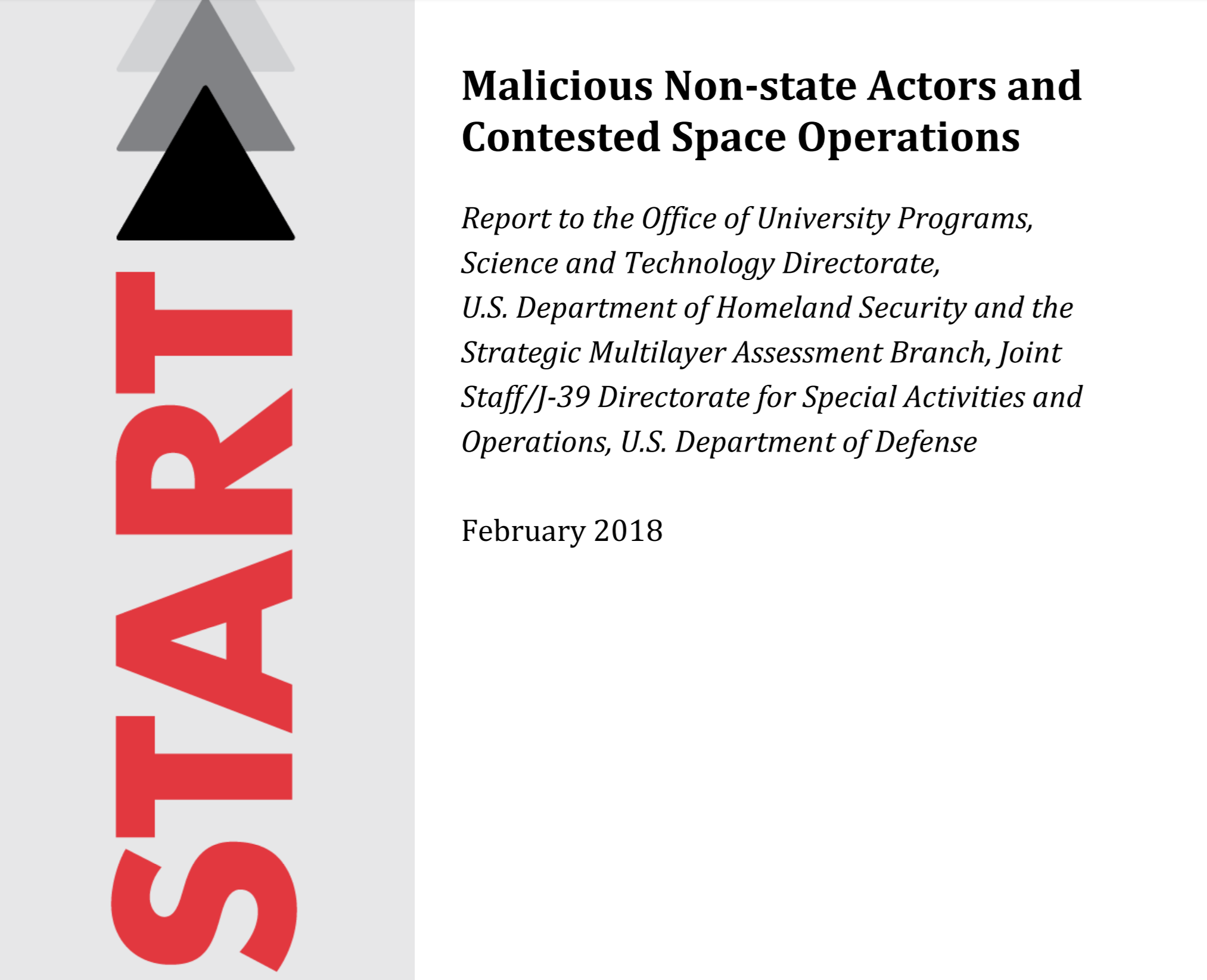Malicious Non-state Actors and Contested Space Operations

Malicious Non-state Actors and Contested Space Operations
Authors | Editors: Gabriel, R. (Study of Terrorism and Responses to Terrorism (START)); Koven, B. (START)
Executive Summary
This report provides an analysis of potential threats to space-based systems posed by non-state actors. It places particular emphasis on the need to consider the space domain as part of a multi-domain threat environment where domains are interconnected and interdependent. This research devotes significant attention to examining the nexus between space and cybersecurity, and to the strategic vulnerabilities posed by the increasing integration of cyber and space technologies in critical infrastructure.
It proceeds by examining the nature of cross-domain threats, and the space-cyber nexus. It then provides an overview of potential space-based threats and risks. Subsequently, the report develops a typology of malicious actors based on their motives and capabilities. Importantly, this report evaluates the risks that each type of actor might pose individually or in concert with other types of actors. While some non-state actors with malicious intent possess the requisite capabilities to directly threaten space-based systems, many groups possess only malicious intent or the requisite capabilities – not both. Consequently, considering non-state actor collaboration is especially necessary. This report also highlights how space-based capabilities, such as open-source satellite imagery, can be (and indeed, has been) exploited by nonstate actors to further their terrestrial objectives. Finally, it concludes with some recommendations to increase resiliency.
In disaggregating threatening groups by motivation and capabilities, this report finds that of all the types of actors, cyber warriors backed by nation states have the greatest potential and interest to interfere in space. In contrast, more traditional violent non-state actors (VNSAs) have the most limited capability, and probably the smallest interest, in interfering in space. Despite this, it is clear that VNSAs do have much to gain by exploiting space-based technologies (e.g., for intelligence collection, propaganda) in support of their terrestrial activities.
While many of the scenarios contained in this report are largely hypothetical, they are possible. Specifically, at least some non-state groups already possess many of the requisite capabilities and malicious intent. Moreover, there are numerous known security deficiencies in commercial space technologies. As commercialization of the space domain and the number of new commercial entrants increase, existing vulnerabilities will become more pronounced, and additional vulnerabilities will be created. In short, the expansion of multinational commercial space operations is outpacing the ability of governments to anticipate or regulate activities in this domain. Moreover, as space-based capabilities become ever more important to economic activity and terrestrial infrastructure, they also become more attractive targets.

Comments